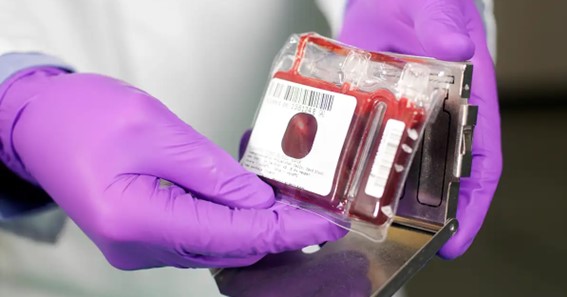Cord blood is the blood from the umbilical cord and the placenta. It is rich in stem cells, which are a type of cell that has the ability to become all other blood cells, as well as other types of cells. This makes cord blood useful for treating a variety of diseases, including some types of cancers and immune system disorders. Cord blood banking involves storing your child’s cord blood so it can be used later if your child ever needs it. But with so many cord blood banks out there (some top ones you can find here), how do you know which one to trust?
There are several things you should look for when evaluating any potential cord blood bank. Cord blood banking is not something that you want to rush into without doing your homework first. And because this is such an important decision, we have put together a list of some things that you should keep in mind when evaluating any potential cord blood bank:
Reputable Cord Blood Banks Are Accredited
One of the first things you should look for when evaluating any potential cord blood bank is whether or not it is accredited. Accreditation is a process in which industry experts review a facility and its practices and then make sure they meet certain standards. Cord blood banks that are accredited have met high standards regarding their facilities, the quality of their staff, and the quality of their procedures. Accreditation is important because it shows that a company has been thoroughly evaluated and has been found to be compliant with industry best practices. It is important to be sure that the cord blood bank you select is accredited by either the American Association of Blood Banks (AABB) or the Foundation for the Accreditation of Cellular Therapy (FACT).
Cord Blood Banks Offer Screening And Testing
Before collecting and storing your child’s cord blood, the cord blood bank should screen and test it to make sure it is healthy and disease-free. This is similar to the blood testing you’d have done during pregnancy, but it is done on the cord blood after it has been collected. Cord blood screening tests for things like the Rh factor (whether your child’s blood is Rh positive or Rh negative), the ABO blood type, the presence of infectious diseases like HIV, and the HLA type. During testing, the cord blood is also typed for Human Leukocyte Antigens (HLA), which are proteins found on most cells in the body. HLA types are what determine whether a patient will be able to use the cord blood for a transplant.
Cord Blood Banks Are Licensed
Another important thing to look for when evaluating any potential cord blood bank is whether or not it is licensed. A license means that the facility has met certain standards and has been approved by the state to store cord blood. Cord blood banks that are licensed have met high standards regarding their facilities, the quality of their staff, and the quality of their procedures. You can look up whether a cord blood bank is licensed online or by contacting your state’s health department. The state will also have information about any complaints or violations that have been issued against the cord blood bank.
Cord Blood Banks Are FDA-Registered
Another important thing to look for when evaluating any potential cord blood bank is whether or not it is FDA-registered. This means that the cord blood bank has been reviewed by the Food and Drug Administration for compliance with the Clinical Laboratory Improvement Amendments (CLIA). The purpose of the CLIA is to make sure that the laboratories that perform tests on blood and other medical samples are working according to accepted standards and are accurately reporting their results. Cord blood banks that are FDA-registered have met high standards regarding their facilities, the quality of their staff, and the quality of their procedures. Cord blood banks that are FDA-registered have also been reviewed for safety and accuracy by the FDA.
Cord Blood Banks Offer a Guarantee
Another important thing to look for when evaluating any potential cord blood bank is whether or not it offers a guarantee. You want to make sure that the cord blood bank that you select offers a guarantee, such as a money-back guarantee or a guarantee that your child will be able to use the stored blood. If you are presented with a guarantee, make sure that you read the fine print so you understand exactly what is and is not covered. The best guarantee will also include a timeframe in which your child can access the stored blood if they ever need it.
Cord Blood Banks Store Samples In The Locations They Serve
Another important thing to look for when evaluating any potential cord blood bank is where it stores the cord blood samples. You want to make sure that the cord blood bank stores your child’s cord blood sample close to where you live. This will make it easier for you to access the blood if your child ever needs it. Cord blood banks typically store their samples in a few different ways: in a centralized facility, in a decentralized facility, or in individual freezers. Some centralized facilities house a large amount of samples in one place and then distribute them as needed. You want to make sure that the cord blood bank you select uses a centralized storage facility that is close to where you live.
